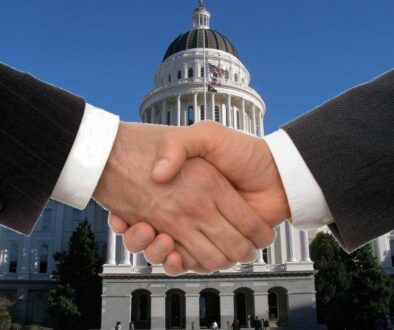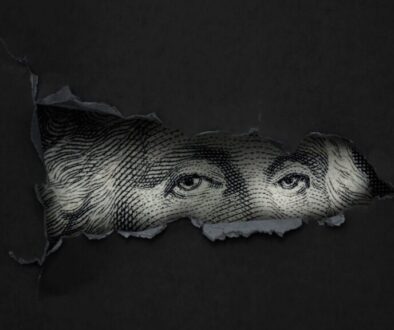It’s Time for Transparency at Disney
As 2021 Lobbying Proposals Are on an Early Roll, BlackRock and Vanguard Hold the Key to Dark Money Transparency at Walt Disney
In the wake of the January 6 riot, shareholder proposals for lobbying disclosure have received increased support in 2021. The first proposal at Tyson Foods filed by the Teamsters and cofiler Oxfam received over 80% support of outside shareholders. For the first time at Tyson, Blackrock and Vanguard both supported the proposal. Additionally, the proposal at AECOM filed by John Chevedden passed with 54.6% support.
On March 9, the third lobbying disclosure shareholder proposal for 2021 will be going to vote at Disney. Last year, the same proposal seeking lobbying disclosure received 33.7% support of shareholders. But if Vanguard and BlackRock had voted their combined 198,686,536 shares for the proposal instead of voting against, it would have received a majority of votes for and against. Multiple studies have shown if these two managers vote for lobbying disclosure proposals, it is likely many of these proposals will pass.
As shareholders vote on the 2021 proposal, Vanguard and BlackRock again appear to hold the balance of proxy voting power, with 246,843,283 shares and 13.6% of outstanding shares. Will they repeat their support for lobbying disclosure?
Blackrock and Vanguard Have Business Ties with Disney
One issue noted in Disney’s 2021 proxy statement is the fact that Vanguard and Blackrock both manage funds on behalf of Disney for defined contribution plans. Blackrock also manages investment portfolios for the company’s pension funds. Vanguard and Blackrock received fees of approximately $1 million and $15 million. Multiple studies have shown that business ties significantly influence pro-management voting and that pension- related business ties influence fund families to vote with management at all firms. As Jack Bogle, founder of Vanguard, explained: “Votes against management may jeopardize the retention of clients of 401(k) and pension accounts.”
Investors Need Dark Money Lobbying Disclosure
Lobbying is important to Disney. An exempt solicitation by lead filer Mercy Investment Services is filled with numerous examples for why investors should support the proposal, including:
- Disney’s federal lobbying efforts have been described as “so effective that the United States changed its copyright law twice, in 1976 and in 1998.” Disney’s lobbying in Florida has been described as “the 800-pound mouse protecting its cheese in the backrooms of city hall and state government.”
- Shareholders face a dark money blind spot on Disney’s contributions to third-party groups that use that money to influence policy. Disney fails to disclose a closed top limit for its trade association payments and fails to disclose its contributions to social welfare organizations (501(c)(4) organizations), which can also lobby. For example, the Rule of Law Defense Fund is a social welfare group that helped organize the protest before the Jan. 6th riots and is an arm of the Republican Attorneys General Association. Yet, shareholders have no way to know if Disney made contributions to the Rule of Law Defense Fund.
- Disney’s involvement in trade associations like the Chamber of Commerce, which undermined the Paris climate accord, could pose reputational risks. Groups like Change the Chamber are calling on Chamber members like Disney to change the Chamber’s position against science-based climate legislation.
- Disney’s major trade associations, the National Association of Broadcasters (NCTA), the Internet & Television Association, and the Motion Picture Association; support controversial groups like the Competitive Enterprise Institute , a 501(c)(4) social welfare group. CEI is controversial for promoting climate denial.
Additionally, a Public Citizen analysis found that “Disney backed 96% of the Republican lawmakers in Florida who, in a pair of party-line votes, passed legislation to sabotage a popular voting rights ballot initiative that restored former felons’ voting rights.”
Proxy Advisor Support
Institutional Shareholder Services has recommended in support for the proposal, in part noting that Disney fails to:
- specify management or board oversight related to the company’s trade association memberships or indirect lobbying activities;
- discuss how it reconciles reputational risks when its trade associations’ lobbying activities contradict the company’s public positions;
- provide the exact amount of payments to trade associations and therefore the portions used for lobbying activities are not clear; and
- provide its federal and state level direct lobbying expenditures on its website, where it can be easily accessed.[1]
If you own shares directly in Disney, you should vote in favor of Proposal 4, which asks the company to prepare an annual report on its lobbying activity so that shareholders- the true owners of the company- can assess the associated risk.
If you don’t own stock directly in Disney –or any other company where these shareholder resolutions are filed this year — but are worried about undisclosed political spending by corporations that is being used to influence our democracy, chances are you can have an impact through your 401(k) instead.
If you invest your retirement with Vanguard, BlackRock, Fidelity, or State Street, tell them to change the way they vote so that progress on disclosure can move forward.
[1] ISS 2021 Walt Disney Proxy Analysis, February 17, 2021, p. 29.
This post was updated on March 9th, 2021 to include the Public Citizen analysis of Disney’s spending in Florida.



